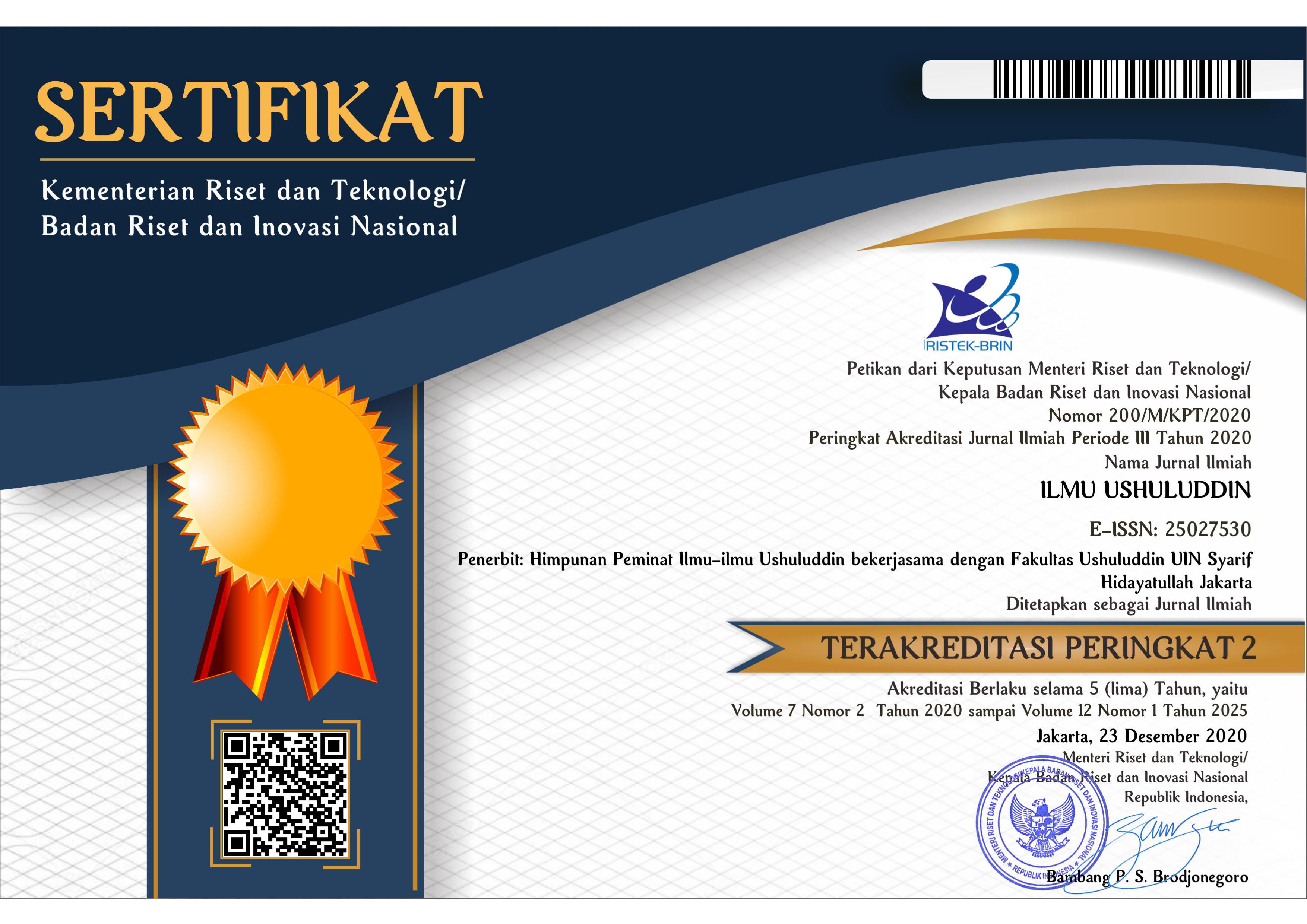Reflections on the Structural Base of the Early Islamic Thought
DOI:
https://doi.org/10.15408/ilmu-ushuluddin.v1i4.1015Abstract
Religion is not merely value-resources which influence its adherents’ ideas and attitudes, but it respectively functions as an inspiration and transformation of cultural and political values that have been inherited by subsequent generations as well. This writing scrutinizes the root of Islamic social thoughts from the classical era, when the texts of the Holy Book have become ‘public constitution,’ in which the texts have been interpreted by countless theological school of thoughts in the form of ‘reaction-action’ towards arbitrage (tahkīm) involving in between ‘Alī b. Abū Tālib and Mu‘āwiya. This ‘reaction-action’ previously dealt with an issue of whether a person is a Muslim or kāfir, and later on, rose to reach the political questions—and it unconsciously has experienced the incubation epochs of social basis of Islamic thought until recent days. The emergence of hard-liner groups like Usamah bin Ladin, who fought on behalf of Islam, can be traced in this modern period from the immeasurable theological streams residing in the past phase.



